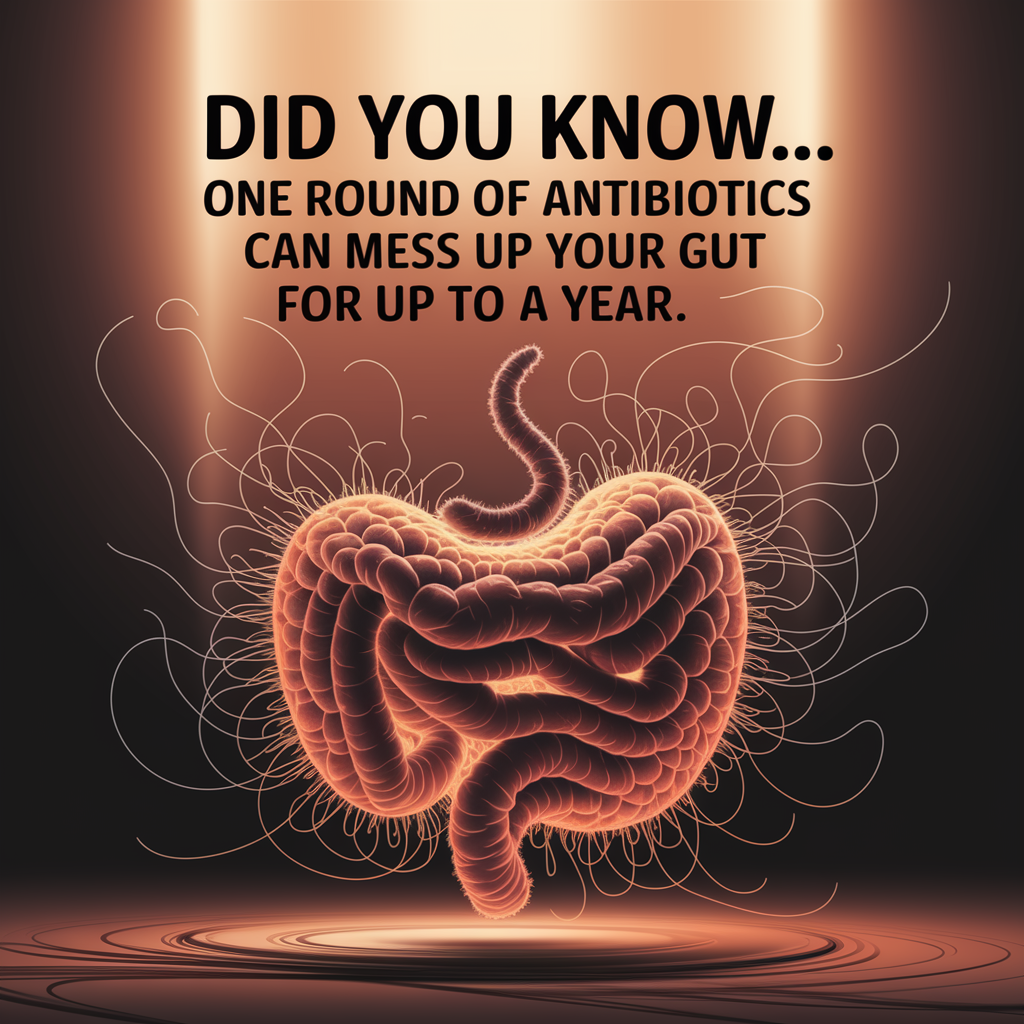
Stomach Pain After Eating Pork? Yep, Been There.
I never used to think twice about eating pork. Bacon for breakfast, a pork chop for dinner—it was just normal, delicious food. But then came the cramps. One night after devouring a pulled pork sandwich, I felt like someone had punched me in the gut. That heavy, bloated feeling sat like a brick in my stomach and stuck around for hours.
Turns out, stomach pain after eating pork is more common than people think. Whether it’s a sharp cramp, a dull ache, or just an overall gut discomfort, it’s something a lot of folks are quietly dealing with. And for me, it wasn’t just a one-time thing—it kept happening until I finally figured out what was going on inside my gut.
If you’re dealing with something similar, you’re not alone. Let’s break it down so you can actually figure out what’s causing your pork-related tummy trouble—and what to do about it.
Can Pork Really Cause Stomach Issues?
Believe it or not, pork is one of those meats that can be tricky for some guts to handle. You don’t have to be “allergic” to pork for it to mess with your stomach. There’s something about the way pork is digested—especially if it’s fatty or not cooked right—that can stir up all kinds of symptoms, from bloating and gas to full-on pork-related gut pain.
Some folks develop a mild pork intolerance, meaning their body just doesn’t break it down as smoothly. Others might react to the seasoning or oil it’s cooked in. Either way, that stomach pain after eating pork might not be in your head—it could be your gut saying, “Hey, this meat’s not working for me.”
If your digestion already feels off sometimes, pork might just be tipping it over the edge. You might want to read up on how your gut could be sabotaging your health without you even knowing—it helped me connect some dots that I didn’t even know were related.

Pork Sensitivity vs. Pork Allergy: What’s the Difference?
Let’s clear something up—having stomach cramps after eating pork doesn’t automatically mean you’re allergic. An actual pork allergy is pretty rare, and when it happens, symptoms usually go beyond just a stomach ache. Think: hives, swelling, or even breathing problems.
But pork sensitivity? That’s a different story. It can cause slower, sneakier symptoms like bloating, reflux, or an upset stomach. That’s where I landed. My gut wasn’t happy after eating pork, but it wasn’t trying to send me to the ER either.
These delayed reactions are tough to spot unless you track what you eat and how you feel afterward. If you’ve ever thought, “Why do I feel worse a few hours after eating?”—it might not be in your head. I used the same approach I used when I realized why I kept waking up with stomach pain every morning. The patterns started showing up once I paid attention.
The Problem Might Be Fat—Especially in Pork Belly
This one hit me like a ton of greasy bricks. Pork, especially cuts like pork belly, sausage, and bacon, can be seriously high in fat. And when your gut is already sensitive, all that fat can slow digestion and cause bloating, cramping, or acid flare-ups.
Fat lingers in your stomach longer than other foods. That extra time can trigger discomfort, especially if your gut isn’t working at full speed. I didn’t realize that high-fat foods like pork could actually delay healing in your digestive system. In fact, I learned the same thing applies to chocolate too—check out how the fat content in chocolate can mess with your gut.
If you notice you feel worse after greasy pork dishes, try switching to leaner cuts like pork loin or trimming off visible fat. That simple change actually made a huge difference for me. And hey, I still eat bacon sometimes—just maybe not five strips in one sitting anymore.

It Could Be Undercooked or Contaminated Pork
Let’s talk real talk: not all pork is created equal. One time, I had some grilled pork that “looked” done but ended up leaving me on the couch for hours, curled up and miserable. If you’ve ever had stomach pain after eating pork that felt more like a stomach bug, it might have been undercooked—or worse, contaminated.
Pork needs to be fully cooked to kill off parasites like Trichinella spiralis. Even though that’s rare these days, food poisoning from improperly handled or undercooked pork is still very real. Symptoms might include nausea, vomiting, gas, or diarrhea within hours of eating.
Sometimes, the symptoms mirror what I felt when I had diarrhea every morning but felt fine the rest of the day. If the pork wasn’t bad, it might have just been too rich for my already-irritated gut. Either way, if the pain hits hard and fast, it’s worth questioning how that pork was cooked—or how long it sat on the counter.
Pork Digests Differently Than Chicken or Beef
Here’s something I didn’t realize until I started paying attention: pork just hits different—in my stomach, that is. For me, chicken goes down easy. Beef? No problem. But pork? That stuff sits there like a rock.
Pork contains a unique mix of fats and proteins that can be a little tougher to break down. If your digestion is already sluggish or your gut lining is inflamed, it may not process pork as smoothly as leaner meats.
It reminded me of that awful heavy feeling in my stomach I got after big meals, which I later traced to certain trigger foods. If you’ve had meals that leave you feeling bloated, stuck, or like your food isn’t moving, you might want to read more about what causes that heavy gut sensation and how to beat it.
Pork also takes longer to digest compared to some other proteins. That longer digestion time can mean your stomach has to work overtime—and you feel the effects more intensely.

Gut Inflammation Can Make Pork Feel Worse
If your gut is already inflamed or out of balance, certain foods become a bigger deal than they normally would. For me, that included pork. Even a few bites of fatty pork roast would flare up that low-level gut ache I was constantly trying to ignore.
The connection became clearer once I learned how much gut inflammation affects food tolerance. A weak gut barrier, often caused by stress, poor sleep, antibiotics, or even sugar, makes it harder for your body to process meat and fat-heavy meals.
The good news? You can make your gut less reactive over time. What helped me was slowly fixing my gut health through simple lifestyle changes that naturally support your digestive system. Once my gut started healing, I could eat a bit more variety without paying the price.
If pork still messes you up, that doesn’t mean you’re doomed—it just means your gut might need a little love.
Stomach Cramps After Eating Pork: When It Hits Hard
For me, the symptoms didn’t always hit right away. Sometimes I’d feel fine after eating pork—until two or three hours later when my stomach would suddenly cramp up, like it was twisting itself into knots. Other times, the pain would be immediate, showing up within 30 minutes of eating.
If you’ve had stomach cramps after eating pork, pay attention to how long it takes to feel them. Immediate pain might suggest a food intolerance, while delayed pain could mean your gut is having trouble digesting the meal properly.
There’s a pattern I’ve seen: pork + stress = gut meltdown. If I eat something heavy like pork when I’m already anxious or haven’t slept well, it hits me worse. It reminds me a lot of how IBS symptoms can sneak up and wreck your day.
Learning your body’s timing patterns is key. Once I connected the dots, I stopped feeling crazy for thinking pork was the problem—it really was.

Pork + Acid Reflux = A Rough Combo for Some of Us
I didn’t realize it at first, but pork was also triggering my acid reflux. Especially when I’d eat something greasy like pork chops or sausage at night, the burning in my chest and throat was unbearable. Sometimes it felt like my food just sat there and bubbled back up.
Pork is high in fat, which can relax the lower esophageal sphincter—aka the muscle that keeps stomach acid where it belongs. That makes reflux more likely. If you already deal with reflux, pork might just be tipping the scale.
I found relief when I switched to leaner meals and started drinking the only chamomile tea for acid reflux that actually worked for me. A warm cup after dinner helped soothe things before bedtime, especially on days I slipped up and had pork anyway.
So yeah, stomach pain after eating pork might not just be from your gut—it could be from your esophagus getting blasted with acid.
Is It Just Pork, or All Processed Meat That Wrecks My Gut?
I started asking myself a new question: is it really pork, or just certain types of pork?
Turns out, highly processed pork—think bacon, ham, hot dogs, sausage—was way worse for me than a plain pork roast. Processed meats often contain preservatives like nitrates, added sugars, excess salt, and weird flavor enhancers that don’t sit well with an already-sensitive digestive system.
If you’ve ever had that post-meal slump or bloated gut after eating these meats, it might not be the pork itself—it could be all the extras stuffed into it. I noticed the same thing when I was figuring out why my stomach hurt worse after I pooped than before. Sometimes, it’s not just one factor—it’s layers of things adding up.
If processed pork bothers you, try going back to basics with clean, minimally seasoned pork and see if there’s a difference. For me, there definitely was.

IBS, SIBO, or Gallbladder? Sneaky Causes to Check
Not all pork stomach pain is about the pork. In my case, it turned out pork was just setting off deeper problems I didn’t know I had—specifically, IBS-D and some possible bile issues.
IBS (irritable bowel syndrome) makes your gut more sensitive to trigger foods. SIBO (small intestinal bacterial overgrowth) can cause bloating and pain from even healthy meals. And if your gallbladder isn’t producing enough bile to break down fat? Say hello to cramps and gas after fatty pork.
Once I started digging into gut health and learned how imbalanced things really were, it made more sense. That’s what got me to finally read this post on how restoring gut bacteria after antibiotics changed everything for me. My gut needed a reset—and pork just made that obvious.
If this all sounds familiar, don’t ignore it. These hidden causes are often the missing piece to finally feeling better.
What Helped Me Feel Better After Eating Pork
Once I figured out pork was one of my triggers, I didn’t want to completely give it up (because, bacon). So I started testing things to calm the stomach pain and give my gut a fighting chance.
Here’s what worked for me:
- Drinking warm ginger or chamomile tea right after eating pork
- Cutting back on fatty cuts and choosing leaner pork loin or tenderloin
- Taking a digestive enzyme with pork-heavy meals (lifesaver)
- Eating slower and chewing more — I didn’t realize how fast I inhaled food until I paid attention
- Keeping a food journal to track exactly when symptoms hit
I also leaned on natural remedies like herbal teas that actually soothe gut discomfort and stayed hydrated to keep things moving. It wasn’t perfect, but it was a heck of a lot better than dealing with mystery cramps every other day.

How I Figured Out It Was Pork (Not Everything Else)
This part took some time. I’d been blaming all sorts of things—dairy, gluten, stress—before I realized pork kept showing up in my worst stomach episodes. The only way I cracked it? Elimination and tracking.
I kept a simple food and symptom journal for two weeks. I didn’t cut pork right away—instead, I ate normally and just observed. The trend became clear: whenever pork was involved, my gut reacted. When I skipped it, I felt fine.
It reminded me of the time I learned why my stomach felt worse in the morning before eating anything—patterns matter, and writing it down helped me see them clearly.
I’m not saying pork is evil. But for me, it’s something I have to be mindful of. Once I accepted that and adjusted my habits, my gut finally stopped yelling at me every time it showed up on my plate.
When to See a Doctor About Pork-Triggered Stomach Pain
Look, I’m all about figuring things out on my own when I can. But if you’ve got stomach pain after eating pork that doesn’t get better—or starts getting worse—it’s time to get checked out.
Here are some red flags you shouldn’t ignore:
- Severe pain that lasts more than a few hours
- Nausea or vomiting after every pork meal
- Blood in your stool or black, tarry stools
- Sudden weight loss without trying
- Fever, chills, or extreme fatigue after eating pork
Those can signal something more serious like a pork allergy, foodborne illness, a gallbladder issue, or something deeper like IBD (inflammatory bowel disease). If you’re unsure, talk to your doc or a GI specialist.
I ignored my symptoms for months thinking I was just “sensitive.” Once I got real answers, everything finally made more sense. If something feels off, trust your gut—literally.

My Final Thoughts For YOU on Stomach Pain After Eating Pork
Pork isn’t evil. But for some of us, it’s a digestive landmine.
Whether it’s a mild intolerance, high fat content, hidden IBS triggers, or just your gut being extra sensitive—stomach pain after eating pork is real and frustrating. But it’s also manageable.
What helped me was figuring out which types of pork triggered me, tracking how my body responded, and focusing on healing my gut overall. I still eat pork now and then, but on my terms—and with a whole lot more awareness.
If your stomach’s been sending signals you’ve been ignoring, maybe it’s time to listen. You’re not alone in this weird gut journey—and I promise, the answers are out there (even if they come from a pulled pork sandwich).
As an Amazon Associate we earn from qualifying purchases through some links in our articles.

